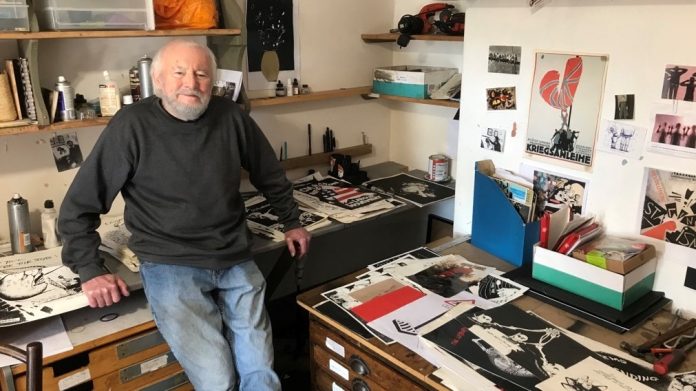Socialist Party and Committee for a Workers’ International (CWI) members are saddened at the loss of Alan Hardman, who passed away in hospital on Thursday 18 January in hospital.
Alan became politically active in the 1960s, joining the Labour Party and as an active trade unionist. He was a trained lithographic printer, having done a six-year apprenticeship in his home town of Barnsley. Alan moved down south after completing his national service, his distaste for the hierarchical nature of the officer caste added to his developing class consciousness. Here he came into contact with the ideas of Militant (now Socialist Party), becoming its first printer.
As Keith Dickinson recalls: “His contribution ranged from doing the page layout, making the negatives for the offset plate-making, doing the printing and maintaining the machines, even engineering spare parts. After he had found and bought excellent machinery at bargain prices, it was all squeezed into inadequate spaces.
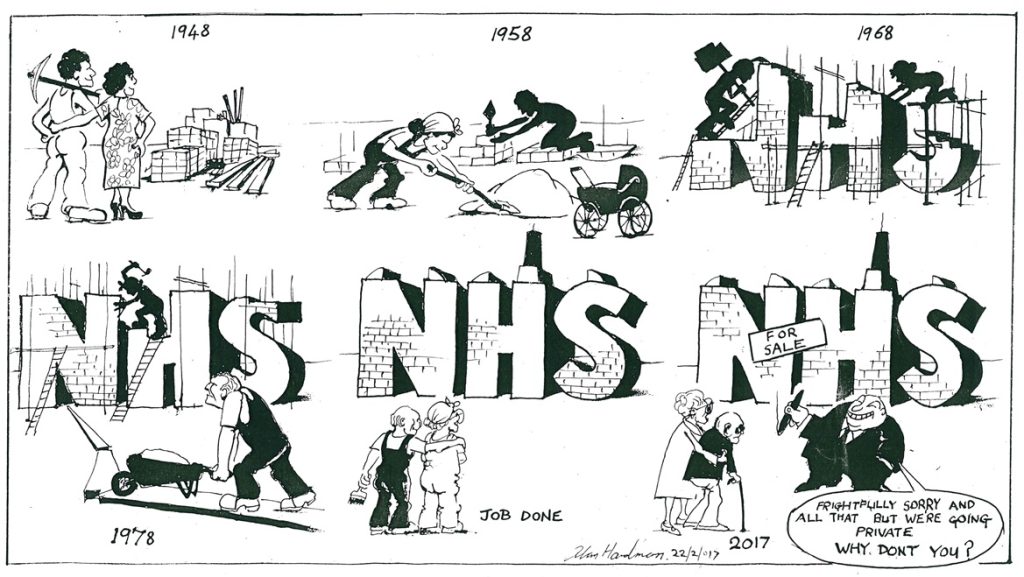
“When he had finished his full-time shift in the Thames Valley, he would drive to Militant offices in East London, complete the page layouts and negatives, drive to a plate-maker on his way back to Sonning Common, do his shift, then back to print the Militant the next day or night.”
When that press was replaced by a bigger press, Alan helped pack it for shipment and travelled over to Spain to set it up for the then Spanish section of the CWI that was developing at the end of the Franco era to help them to properly utilize it.
Alan is best known among Socialist Party members for his cartoons. At first, these were produced while also making sure the Militant was coming out. He decided he ought to try to complete them in one take. Obviously the response to these first attempts was positive and the rest they say is history!
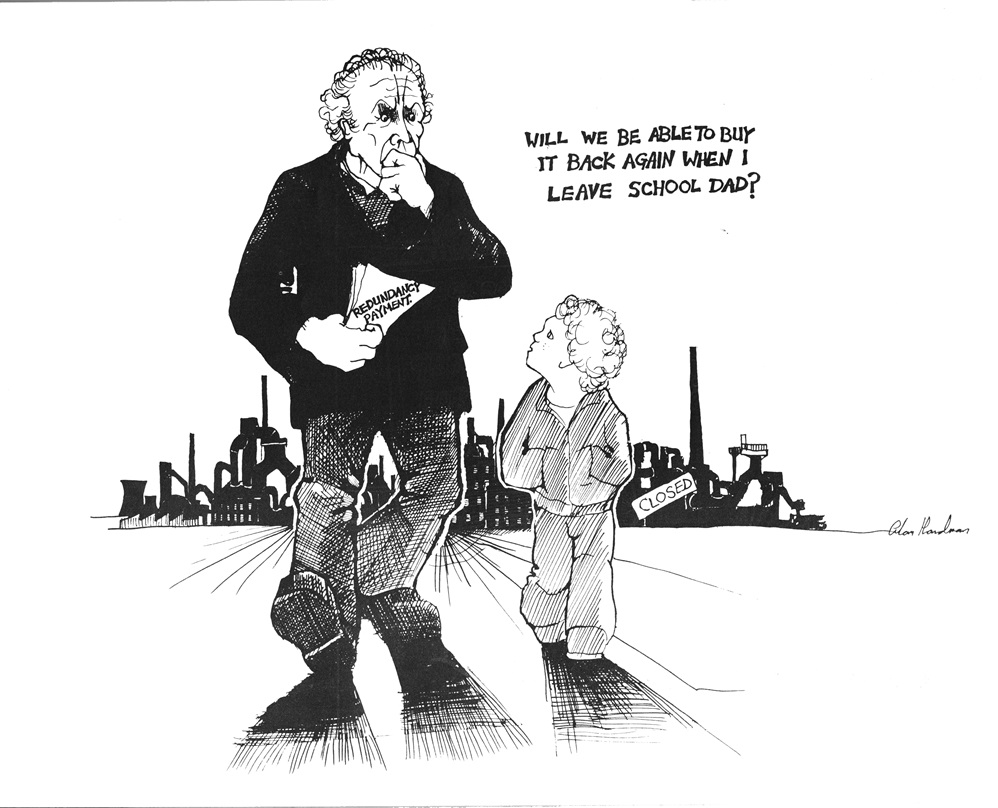
Alan produced a range of cartoons, sometimes expressing a simple idea in the most striking of ways. Of particular note are some of the cartoons produced during the 1984-85 miners’ strike. Cartoons were drawn following discussions with miners and other Militant supporters, would be drawn within hours, and then appear on the picket lines within days.
When Militant supporter Pat Wall was elected as a Labour MP in Bradford North in 1987, Alan drew a huge 12×8 foot cartoon which was affixed to a supporter’s house, depicting the wrecking-ball approach the Tories were taking to local services.
In later years, despite Alan’s output slowing, such was the lasting effectiveness of his work that ones drawn years or even decades earlier simply needed an updated caption. Over the last decade, his work began to get wider recognition with invitations to take part in exhibitions in Barnsley and Skipton.
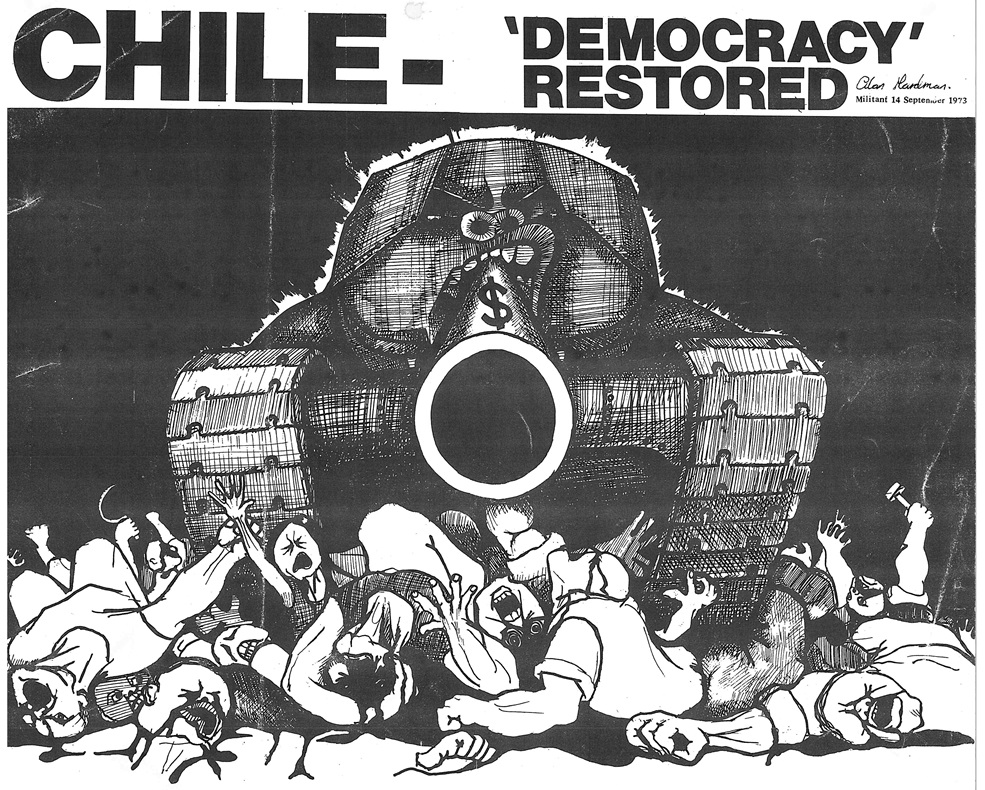
Alan was incredibly humble and self-sacrificing – he knew how to find his place as part of a team to get the best results. It is to Alan’s credit that he was prepared to put his considerable talents at the disposal of a revolutionary party and the struggle for socialism.
Alan didn’t do things by half, when the Yorkshire Socialist Party region held a rally for mark 50 years since the founding of the Militant, we invited Alan to set up, an exhibition of his cartoons. Reluctantly, he agreed to address the meeting. When comrades arrived to set up, Alan had already covered the whole room with his artwork.
And never one to miss a trick, when a comrade asked whether they could get a print, Alan promptly started selling images from the walls of the meeting to raise money for the fighting fund! In the following years, Alan raised thousands of pounds for the fighting fund at national events.
In his last years, Alan was a carer for his wife Sue. Alan had always been acutely aware of the importance of the NHS and, in an interview for a book soon to be published of his work he aptly commented: “We’ve always been fighting to preserve our National Health Service and that’s because anything that the capitalists can’t make profit from eg education and health, the Tories detest. They can’t wait to dismantle and make a profit from it.”
Our condolences go to his family, his wife Sue, children Anna and Ben and his grandchildren.
Iain Dalton, secretary, Yorkshire Socialist Party
Memories of Alan
We first met Alan Hardman in the late 1960s through some comrades living in Maidenhead. He was already a confirmed socialist, and always ready for lively discussions on politics and art. But it was 1971, when the Militant Editorial Board decided it was necessary to go to a fortnightly paper and to buy our own press, that became a real landmark in Alan’s contribution.
We moved into new premises bought from the Independent Labour Party in Cambridge Heath Road, London. To become habitable, the building had to be completely renovated from top to bottom: drains had to be laid, joists put in, floors completely rebuilt, walls plastered. This was made possible only by the devoted and strenuous efforts of our supporters in carrying out massive improvements and repairs to the building.
Many comrades helped, including myself (Peter) doing the digging, with Ted Mooney from Liverpool, and others, adding their knowledge of construction work. Into the back shed was packed Militant’s first precious printing press, acquired through the diligence of Militant’s first printer, Alan. Also cramped in the shed was an archaic folding machine. Eventually the first fortnightly Militant was produced and sold with no more than 217 committed supporters throughout the country. Alan played a crucial role in this early development.
He was not only an extremely talented comrade, practical in every way, skilful, and curious to learn how to mend machines and create useful components; he was also an artist. He often talked about the need to unify the arts and engineering, rather than separate them, as he had observed was happening to the curriculum in schools.
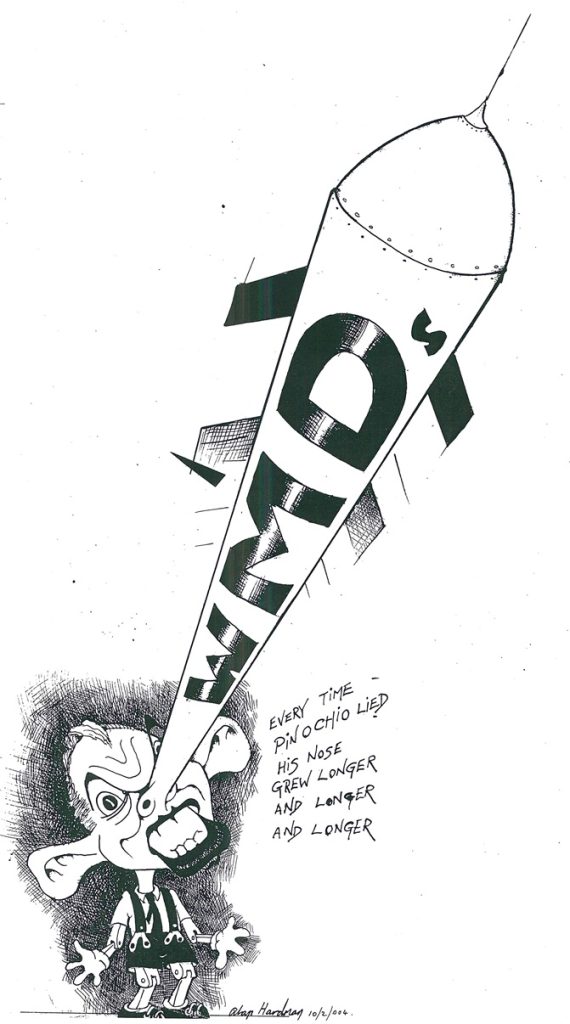
He was fascinated by the work of George Grosz, a German artist in the 1930s who was able to depict in his drawings the power of the working class and the despicable greed of the boss class. The influence of Grosz could be detected in many of Alan’s own drawings, and his cartoons began to be featured regularly in Militant.
As an ardent socialist committed to Militant, he enjoyed discussing whatever the current political situation presented us. The 1970s and 1980s, when a Labour government was followed by the vicious Thatcher government’s attacks on the unions, were particularly full of all kinds of events like strikes, anti-redundancy campaigns, unemployment, wars and more – providing the basic stuff for satire and political comment.
Especially when we moved our premises to a bigger building in Hackney Wick, Alan had the opportunity to discuss with a whole variety of comrades; but Alan and I would get together weekly – sometimes daily – to exchange ideas about what he might focus his cartoon on that week. He recognised that a clear class analysis was a vital ingredient for an impressive cartoon. He needed to assure himself he was getting the message right.
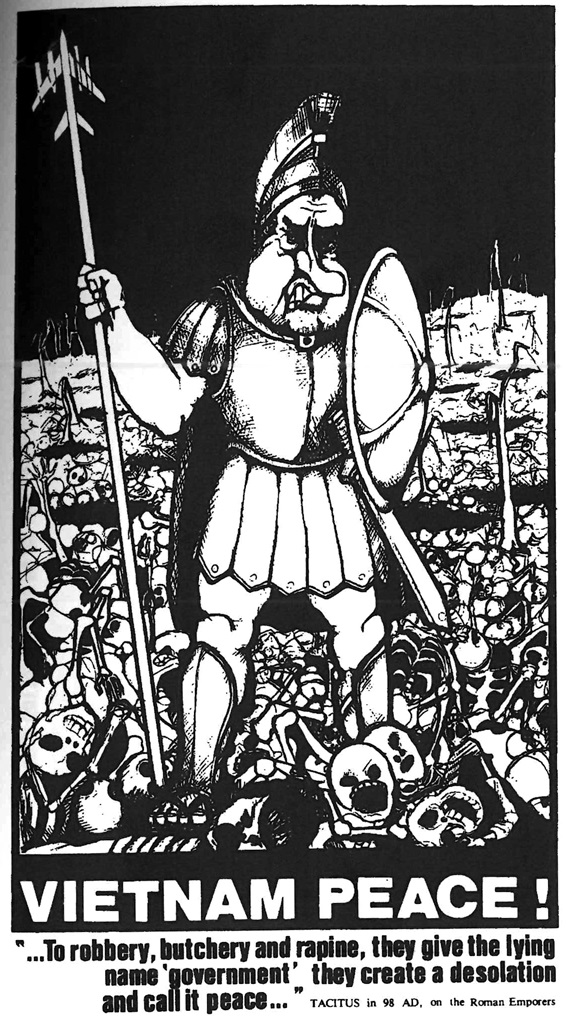
Sometimes a visual cartoon can encapsulate written political points in a more dynamic way. Other times he could pick up an action or a phrase and develop a whole point. I once mentioned to him a quote that Linda had shown me. It was a comment by a Roman historian about the crimes of imperialism. Alan turned this into one of his most popular cartoons in a condemnation of the USA’s Nixon government waging ruthless devastation on the Vietnamese peasants (above).
Comrades looked forward eagerly to his cartoons. Some people even bought the paper just for the cartoon! When Alan moved back to Yorkshire with his family, and as he got older, his cartoons were sorely missed.
In a world today, where visual tech images are ten-a-penny, Alan’s cartoons stand the test of time. For us they are outstanding because they speak for our class. They speak about the power the working class possesses to change society by getting rid of the cruel, greedy, corrupt, ruthless capitalists and imperialists. His memory will live on in his cartoons, but his younger comrades will continue to fight on for the socialist change to which he was so committed.
Farewell Alan, friend, and comrade. We salute you.
Peter and Linda Taaffe


